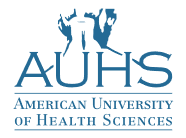Jasen Chau, BS, PharmD
Assistant Professor, Department of Clinical and Administrative Sciences
American University of Health Sciences

Educators, from K-12 to the university level, are grappling with the new teaching environment that has limited traditional classroom interactions. The 2020 pandemic, caused by coronavirus identified in 2019 (COVID-19), has caused pharmacy administrators, educators, staff, and students to adapt to new online teaching and learning strategies. Pharmacy education, therefore, had to be reinvented in some sense, enduring significant changes as compared to previous years. As the public struggles to understand COVID-19 and its transmission, along with constant governmental announcements, recommendations change daily and requires educators to accommodate the delivery of learning materials, adhere to testing procedures and integrity, as well as maintaining balance with their professional and personal lives.
Distant learning initially involves the set-up of computers and applications that have good, clear connectivity to provide remote teaching. The ease of registering users and creating meeting invitations enable educators to spend less time navigating the technology and devote more time to didactic teaching. Assessing students through remote testing also presents with some challenges. The integrity of the examination process as displayed by students honestly has added some extra pressure to an already stressful situation with COVID-19. They must hold their identification in front of the camera, have the microphone and camera turned on throughout the examination, avoid wearing inappropriate attire, and not having extra materials nearby, such as notes, tablets, or books.
Experiential education is also being disrupted, with the challenges mainly due to site access and precautionary measures of having more people crowded in the same space. With these rotations being affected, acceptance to best practice sites are being delayed in some instances, thereby, minimizing opportunities for students to gain hands-on clinical experience. Some programs may however still choose to keep certain students at the practice sites while observing the pandemic response activity regionally. With the differences in acceptance, experiential leaders may find it arduous to offer the same experience to every student.
It seems like the fundamental essentials of sustaining good mental health while practicing social distancing are changing all aspects of everyday life. Maintaining the well-being of everyone in this unprecedented time is most important. There also must be a continuity of business operations, from disaster plan management to bookkeeping and facility maintenance. Non-essential personnel are now considered essential. With COVID-19 turning our world “upside down,” everyone must have resilience and constructive conversations to work collaboratively to continue to deliver didactic pharmacy education and growth, while still maintaining public safety.
